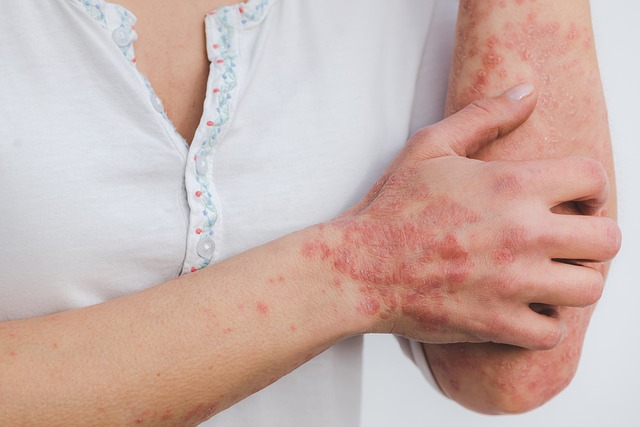Stressed Skin
Your mood might not be the only thing that gets worse. Stress can be terrible for your face and cause many skin problems. Don’t worry; doctors can help you deal with skin problems caused by stress.
Why Does Stress Affect Your Skin?
When you’re worried, your body makes many hormones, like cortisol. This hormone can damage your skin in several ways.
Inflammation
Stress causes inflammation throughout the body, including the face.
Oil Production
When cortisol levels rise, the body produces more oil, which can clog pores.
Immune Function
Stress weakens your immune system, which makes your skin more likely to get sick.
Barrier Function
Stress weakens the skin’s natural barrier, making it dry and irritated.
Table of Contents
The Relationship Between Stress and Common Skin Conditions
Acne
Stress makes your body produce more oil, which clogs pores and causes acne.
Eczema
Stress can worsen the symptoms by destroying the skin’s layer, making it dry and irritated.
Psoriasis
Stress causes inflammation, which can cause or worsen psoriasis flare-ups.


Rosacea
Stress can worsen rosacea, making the face look red and swollen.
The Role of Cortisol in Deteriorating Skin Health
The “stress hormone,” cortisol, plays a crucial role in skin health. This is what cortisol does to your skin:
Collagen Breakdown
High amounts of cortisol can damage collagen and elastin, causing wrinkles and premature aging.
Impaired Healing
High amounts of cortisol can make it harder for the skin to heal itself, making conditions worse and taking longer to get better.
Increased Inflammation
Cortisol worsens inflammation, exacerbating skin diseases like acne, eczema, and psoriasis.
Strategies for Managing Skin Stress to Improve Overall Skin Health
Lifestyle Changes
Working out regularly
exercise raises endorphins, which lower stress and improve overall skin health.
A healthy diet
Eating foods high in antioxidants can help fight oxidative stress and inflammation.


Getting enough sleep
Enough sleep helps your face heal and look younger.
Mindfulness Practices
Deep breathing, yoga, and meditation are all techniques that can help you feel less stressed.
Skincare Routines
1. Gentle Cleansing:
Use a gentle wash to maintain your skin’s natural oils.
Moisturize
To make your skin’s protective function stronger, keep it moist.
SPF protection
Being in the sun can worsen skin problems caused by worry. Wear sunscreen all the time.
Antioxidant Serums
To combat oxidative stress, use serums high in antioxidants, such as Vitamin C.
Professional Treatments
Consult a Dermatologist:
Speak with a dermatologist to create a customized skin care plan.


Therapeutic Facials
A professional facial can help with stress-related skin problems.
Stress Management Therapy
Talk to a mental health professional to learn to manage worry better.
Expert Tips and Advice from Dermatologists
We asked top doctors what they thought was the best way to protect your skin from stress:
Dr. Jane Smith
“Managing stress is important for skin health.” Focus on whole-person methods like diet and exercise instead of skin care products.
Dr. John Doe
“Add adaptogens like ashwagandha to your daily routine.” They can help keep stress levels in check.
Dr. Emily White
“Being mindful regularly can make a big difference.” Your skin demonstrates how generally healthy you are.
Conclusion
Knowing how worry affects the skin is the first step in dealing with its effects. You can protect your skin from the damage of stress by learning how to deal with it, practicing your skincare practices, and talking to a professional. Remember that having a calm mind will help your face look great.
Please leave your ideas and suggestions in the box below. Also, don’t hesitate to talk to a dermatologist if you want more personalized help.
Frequently Asked Questions (FAQ)
1. Can reducing stress improve my skin condition?
A: Yes, lowering your worry can significantly affect several skin problems. Stress releases hormones like cortisol, leading to increased oil production, inflammation, and worsened barrier function in your skin. You can lessen these effects and get better skin by learning to deal with stress through changes in your lifestyle and mindfulness practices.
2. How quickly will my skin show improvement once I start managing stress?
A: Improvements can take different amounts of time for different people with different skin conditions. Some people notice changes in a few weeks or longer. Over time, the best benefits will come from sticking to a routine for stress management and skin care.
3. Are there specific foods that can help reduce stress-related skin issues?
A: Yes, some foods can help with skin problems caused by worry. Eating lots of fruits, veggies, and other foods high in antioxidants can help fight oxidative stress and inflammation. Nuts, seeds, and fish, rich in omega-3 fatty acids, can also contribute to skin health. Drinking a lot of water to stay refreshed is vital for skin health in general.
4. Should I consult a dermatologist if I have stress-related skin problems?
A: Of course. If you have skin problems because of worry, you should see a dermatologist. A dermatologist can make a skin care plan just for you and recommend treatments that work best for your face. They can also give you tips on dealing with stress in a way that is good for your face.
5. Can stress cause permanent damage to my skin?
A: Stress can significantly affect your skin, but if you take care of it quickly, these effects usually don’t last. Chronic stress, caused by long-term exposure to high cortisol levels, can cause hyperpigmentation, premature aging, and the thickening of fine lines and wrinkles. However, you can help reverse or lessen these effects by learning to deal with stress well and practicing regular skin care. To stop long-term damage, it’s essential to act quickly.


Amjad Mustafa, the owner and author of Keen2Know, is a highly qualified individual with strong experience in technical engineering. He is an experienced professional with a variety of business, technology, and car knowledge. His academic background prepared him for a diverse career and established him as a prominent figure at the intersection of these rapidly evolving industries.



